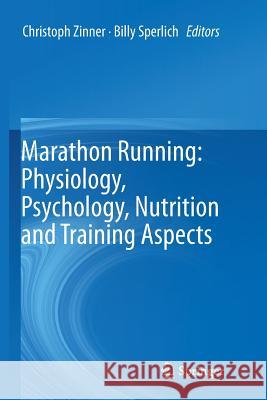Marathon Running: Physiology, Psychology, Nutrition and Training Aspects » książka
topmenu
Marathon Running: Physiology, Psychology, Nutrition and Training Aspects
ISBN-13: 9783319806365 / Angielski / Miękka / 2018 / 171 str.
Kategorie BISAC:
Wydawca:
Springer
Język:
Angielski
ISBN-13:
9783319806365
Rok wydania:
2018
Wydanie:
Softcover Repri
Ilość stron:
171
Waga:
0.26 kg
Wymiary:
23.39 x 15.6 x 0.97
Oprawa:
Miękka
Wolumenów:
01
Dodatkowe informacje:
Wydanie ilustrowane











